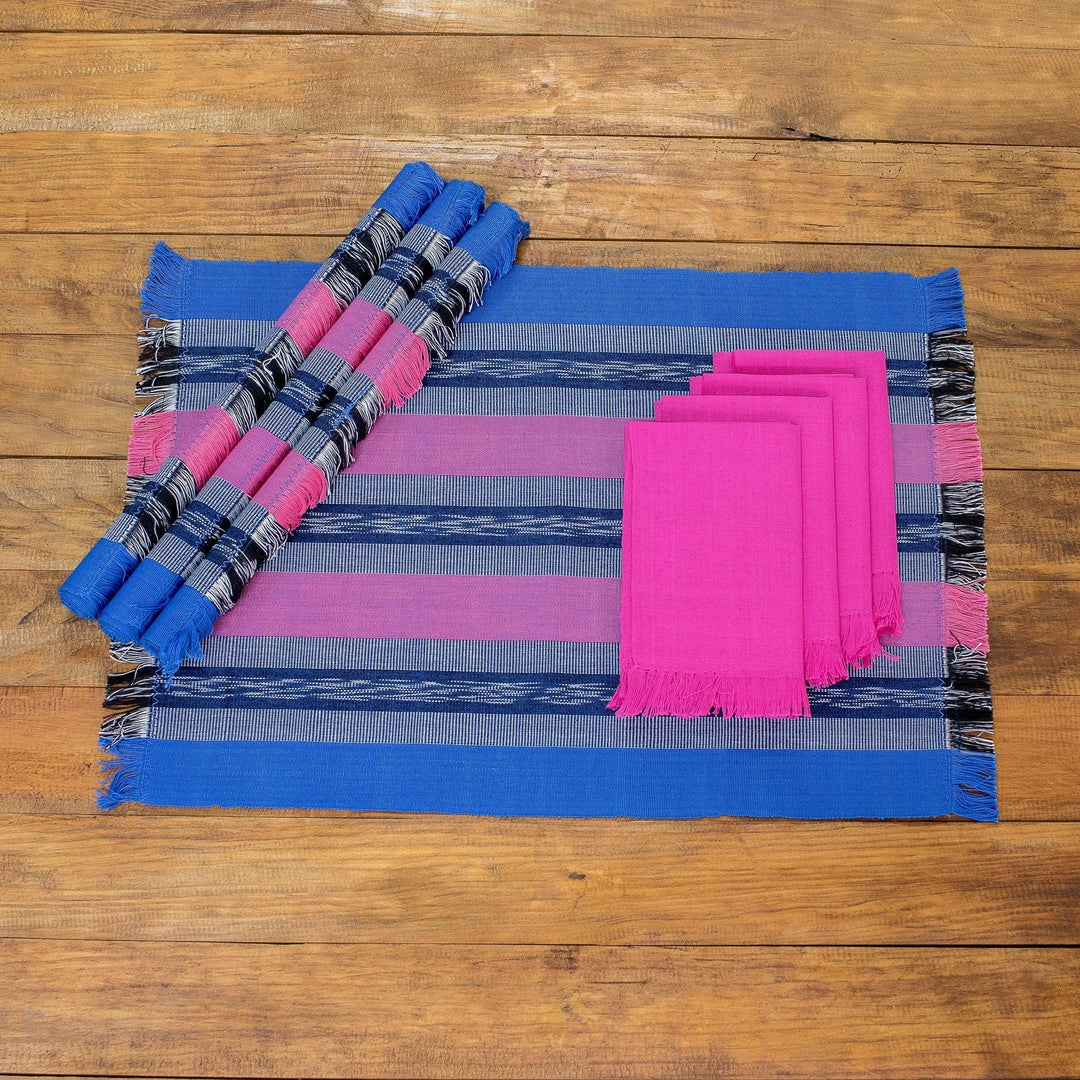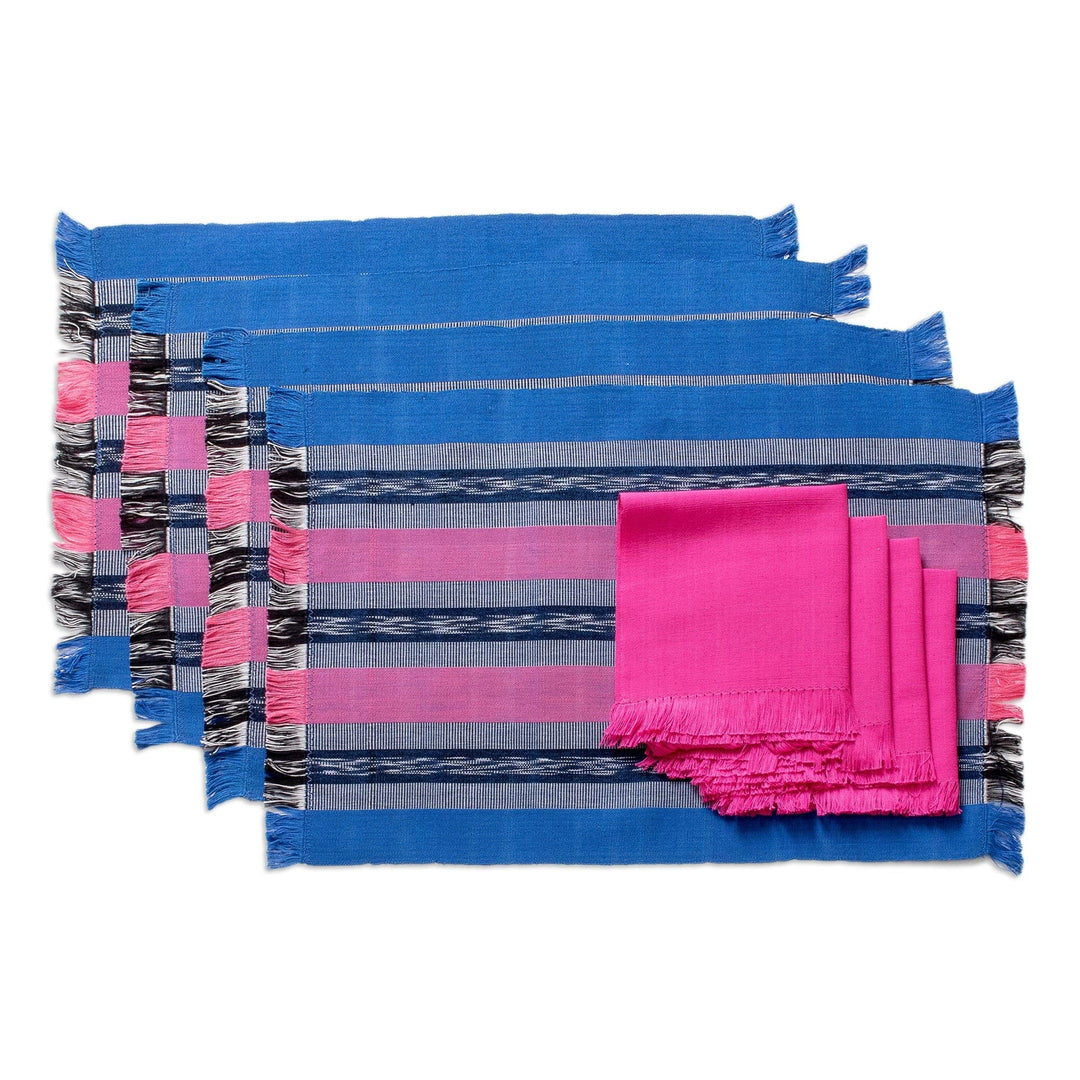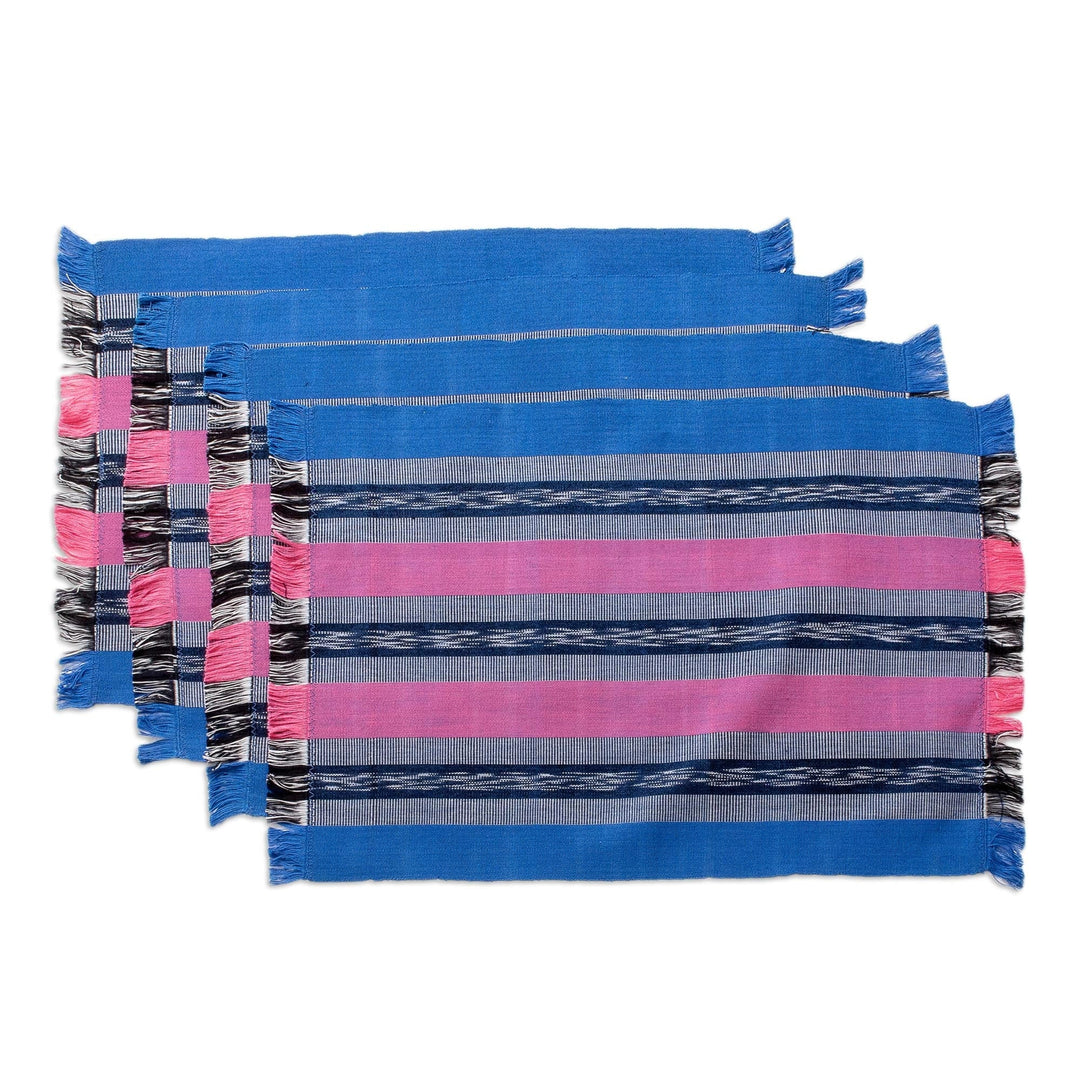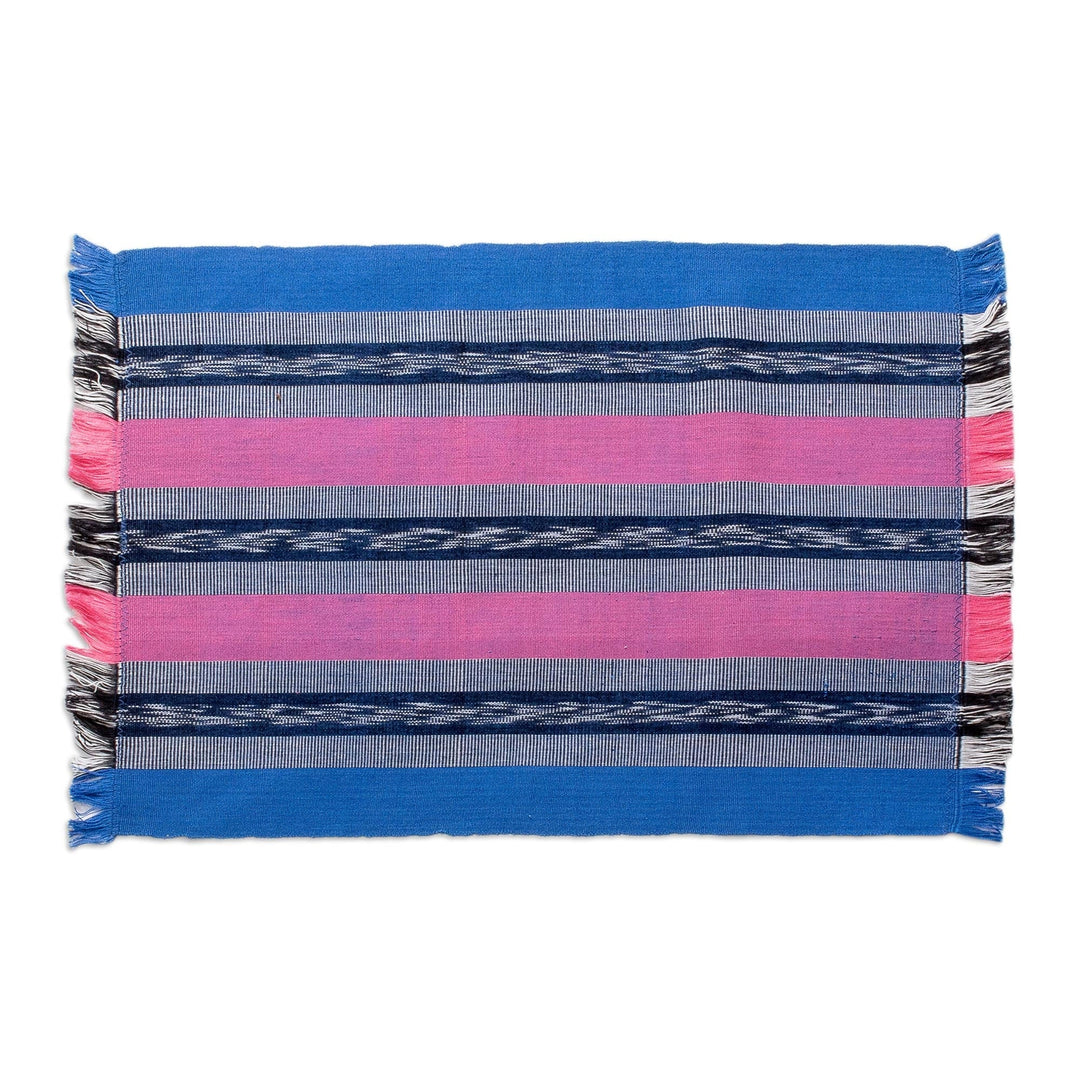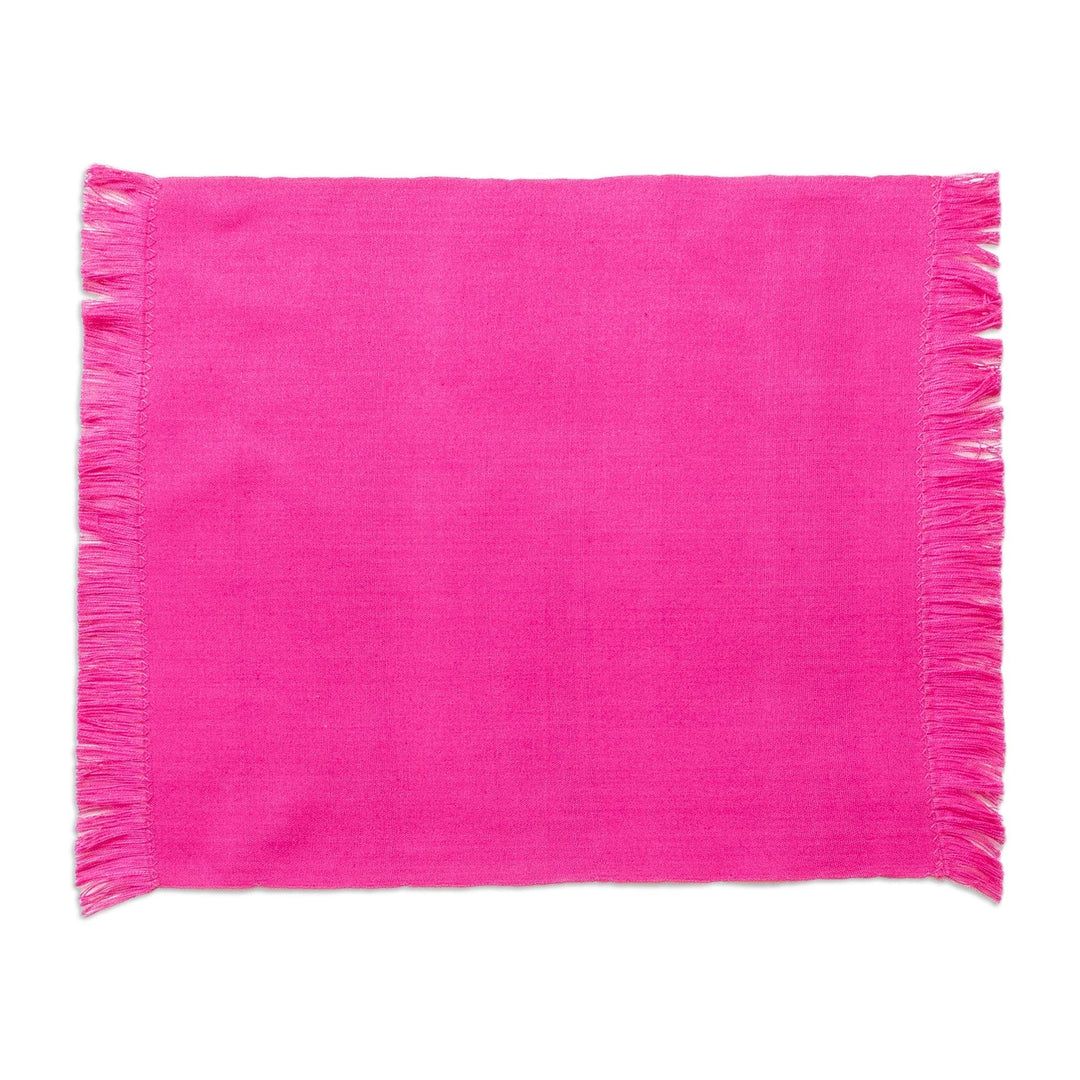

✓ Item added to cart
View Cart
Handwoven Cotton Carmine Placemats with Napkins (Set of 4) - Carmine Affection
Learn more >
Sourced
Guarantee
Handwoven by artisans of the San Antonio Palopó Cooperative in Guatemala, these gorgeous cotton placemats will bring a chic aura to your dining room. With a striped pattern of carmine, blue and black tones, the final touch is in the sweet fringes that dangle gracefully from the ends. On top of that, four cotton napkins complete the set with their pink color.
- 100% cotton
- 0.29 lbs
- Placemat(s): 13.5 inches L x 18 inches W
- Fringe: 1 inches L
- Napkin(s): 12 inches L x 12 inches W
- Fringe: 1 inches L
THE STORY BEHIND THE PRODUCT

Artisan Organization: San Antonio Palopo Cooperative
Country: Central America
"San Antonio Palopó is a municipality in Sololá that forms the main part of the Lake Atitlán region and its inhabitants are mostly dedicated to crafts and agriculture. In San Antonio Palopó, forty-three years ago, a group of artisans recognized the need to organize themselves in order to support family livelihoods and achieve population development. They associated with the aim of specializing in the production of handicraft products and being able to sell them to markets both national and international. In the municipality, there was not much demand, and for this reason, they decided to form cooperatives under the principle of mutual aid and this allowed the formation of what would be the only Integral Cooperative of Craft Production 'San Antonio Palopó' R.L. based in the aforementioned municipality. They currently have 143 associates who make high-quality products and sell them in a store located in the municipal seat. In addition, the Cooperative's products have been exported to the United States, Germany, Sweden and Canada.
"San Antonio Palopó is a municipality of Kaqchikele, and the word Kaqchikel is a compound word. Kaq means red, chi is the mouth, and kel is the order given by the community leaders. For this reason, the colors of the fabrics are always very dominated by red plus the blue background of the sky.
"Before the Cooperative existed, most people dedicated themselves to agriculture or fishing and others migrated to the south coast to cut cotton and clean sugar cane. Many children did not study because there was not enough work to support the families in acquiring their school supplies. Now, thank God, with the support of the Cooperative through handicrafts and families, there is a better income than before and the result is that many children are studying and young people already have a profession. Those are the results of crafts through the Cooperative.
"The type of material that the cooperative uses is cotton thread dyed with azo-free dyes. The cooperative buys the raw material already dyed and the artisans of the cooperative carry out the entire process from winding, warping, folding, assembling and weaving. The difficulty in the whole process is from the winding to the assembly, where a lot of concentration and dedication are required so as not to make mistakes. Whether a little or a lot of fabric is woven, the work always has the same difficulty and the same time, since each of the steps must be carried out carefully.
"Thanks to God, the cooperative has gained prestige for the quality of the raw material they use and the excellent quality of their fabrics. National and international tourists who already know us, always visit us. But there are still some who do not know about the cooperative due to a lack of advertising since we do not have an online store.
"This Cooperative has had a positive impact on the lives of the artisans since it has generated work for them and income for their families. Among all the partners they help each other because they share their knowledge of weaving and fabrication, and in addition, the good use of economic and human material resources is practiced. We commercialize ready-made products and handcrafted textiles made by the Mayan Kaqchikel hands of our associates for national and international tourists.""
